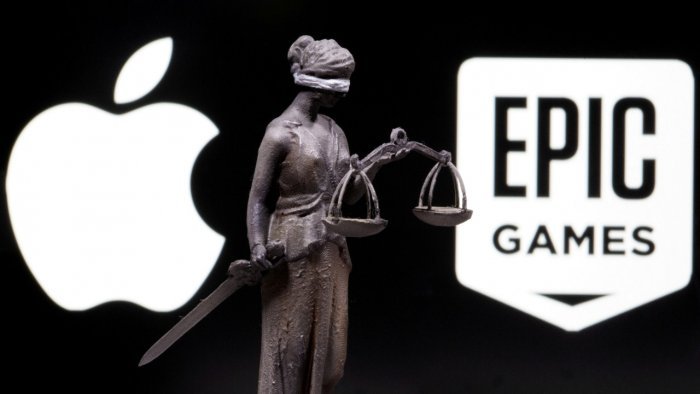Earlier this week, Apple asked a federal appeals court to overturn a legal decision that would force the tech giant to relax its strict App Store rules and force it to allow app developers to inform customers of alternative ways to pay for subscriptions and services that are not available through the App Store.
The decision in September came after a year-long legal fight between Apple and Epic Games, the company that created the video game Fortnite. Apple has also requested a court to postpone the decision requiring modifications to the App Store until after the appeal has been heard.
Apple claimed that changing its regulations too fast would “upset the delicate balance between developers and customers established by the App Store, and would cause irreparable damage to both Apple and users.”
A key point of contention in the battle between the two firms is the control Apple has over its profitable App Store. According to some estimates, the App Store produces $20 billion in revenue each year, and its business model compels developers who distribute their applications on iPhones to pay Apple up to 30 percent of their total revenue.
With the fees and other App Store rules branded as unfair, Epic accused Apple of monopolistic practices and filed suit against the tech giant in May. However, a judge in the Northern District of California ruled that Apple did not have a monopoly in the mobile games market and that Apple did not engage in anticompetitive behavior. Epic is appealing the decision.
Nonetheless, Judge Gonzalez Rogers ruled that Apple had violated California’s anti-unfair competition statutes by preventing app developers from directing their users to payment options that were not available via the Apple App Store.
Businesses were not permitted to inform users who used their applications that they could pay for services by visiting the companies’ websites or other places, since this was prohibited by long-standing App Store regulations. Apple was given 90 days to modify its policies and enable developers to begin promoting other payment options, according to the court.
Epic, which was also dissatisfied with some parts of the judge’s ruling, filed an appeal against the judgement soon after it was given.
It is still up in the air as to precisely what Apple would be compelled to alter if the injunction were to be sustained in this case. However, Apple said on Friday that it “disagrees with the wide meaning” that has been given to the judge’s decision and that developers may go so far as to provide their own competitive payment options inside the App Store.
The firm claimed that it had previously fulfilled some of the requirements of Judge Gonzalez Rogers by agreeing, as part of an August settlement, to enable developers to communicate with their consumers about alternative payment options through email and other means.
When Epic attempted to steer Fortnite gamers away from Apple’s payment systems in August of last year, Apple responded by removing Fortnite from the App Store. This sparked the legal fight. Epic filed a lawsuit, and the two businesses met in a courtroom in Oakland, California, in May. Fortnite was recently removed from the App Store after Epic Games’ attempt to restore its developer account was denied by Apple.
The tech sector was paying close attention to the disagreement since Apple is facing allegations of anticompetitive tactics and demands for regulation from governments across the globe, from Japan and South Korea to the European Union and Congress, among others.

